[dropcap letter=”F”]ilm is something anyone with a heartbeat is endeared by. Whether you grew up watching black and whites or your first introduction to film was seeing a genre of Action or Drama or Comedy or Romance, there is nothing quite as unforgettable as the first time you see a movie projected onto a white screen. It’s cathartic. And beautiful. And mesmerizing. And for a while, we are granted total escape.Movies change your life. They make you fall in love, cry without judgment, root for the hero, indulge in the villain, dream far beyond reality’s confines, and allow you to be young and foolish without ever looking back.
Giuseppe Tornatore: CINEMA PARADISO
Cinema Paradiso is a film that strips us of the trouble of every day life and for a while, we are allowed to feed the innocence of our youth, be a child wandering into a movie theatre, in awe of the films playing, suddenly transformed, transcended into a space where nothing but imagination lives and breathes. It is unlike any other and that is the beauty of this film. It is nostalgic and warm, human, honest, candid, romantic, beautiful and haunting. Giuseppe Tornatore has had a career that has extended well beyond Paradiso, but it’s that film’s essence that will forever hold my heart and I am certain the heart of many. As he said, he just wanted to make a film about his life; his childhood. A movie about growing up and seeing a movie for the very first time. In doing so, he awakens something unequivocally lovely in everyone who watches it, past and present.
When I met Giuseppe Tornatore for the very first time, his grace and smile struck me. He has this uncanny sparkle in his eyes, and when he speaks about film – whether talking about behind the camera or facing the paper before the words pour out, it’s enchanting. And then he smiles and ponders and goes into deep thought and then, almost immediately, smiles again. He is the epitome of why film is extraordinary. He tells the story of love, loss, human frailty, spirited triumph and manages to capture the facets of ones own self without ever isolating an audience. Most importantly? He loves it.
As a passionate lover of the cinema, in particular foreign films, I remember the very first time I watched Cinema Paradiso. It changed me. I was reminded of my own youthful spirit, as I imagine everyone experiences when they watch it. The scenes of friendship between Toto and Alfredo, or what happens when Salvatore falls in love and his love is unrequited, the story of life and everyday stresses, of duty and responsibility and the desire to be free of it all on occasion. The success of this film, aside from being Award Winning, is that it is deeply human. It has all of the makings of real life with the dichotomy of our own unrestricted imaginations. It is life and love deconstructed … frame by frame.
This past week in Los Angeles, we celebrated Italian Cinema. Among the many films recognized was Cinema Paradiso and in fact, film lovers everywhere were celebrating 25 years since it first won an Academy Award for Best Foreign Film. I was fortunate enough to be there on the Red Carpet and then happily ushered into the Egyptian Theatre on Sunset Boulevard to watch the newly restored version of the film. As the screening began after a warm introduction by Danny Devito and a brief greeting by Giuseppe Tornatore, the packed audience sat back to watch. As if seeing the film for the very first time, the audience let out roars of laughter, subtle gasps of concern and a few tears were shed when the fire burst out and we feared for Alredo’s life. Very rarely can a movie captivate audiences decades later but this film does just that. It is a testament to Mister Tornatore’s passion and brilliant storytelling. As he says, “He just wanted to make the audience feel something …”
And we do precisely that.
After a couple of meetings and hearing him talk about filmmaking, it is my pleasure to share with you our interview. He jokes about being older now but I believe his heart and spirit is eternally young. He is a true gem. May you find inspiration, awaken your own passions, feel understood, and explore the true loveliness of Italian Cinema and those who work so willingly to share their vision with the world.
[separator type=”thin”] ATOD – Dawn Garcia (DG): As a child, what is one of the most impacting visuals you saw that changed the way you saw the world?Giueseppe Tornatore (GT): The visual impact that set up, more than changed, my relationship with the world was cinema itself. When, around 6 or 7 years old, I found a completely new way of seeing things, which is cinema, I got effected by it; as much as a 7 year-old can already have a vision of the world. So, there hasn’t been a real turning point, but there is no doubt that the cinema screen has been crucial in understanding how the world was much more diverse and complex than it appeared to me living in a small reality of the countryside in Sicily.
DG: Growing up as a young child in the 60s, what changed the innocence into practicality?
GT: Definitely the first time I fell in love with a girl and she didn’t return my love. The first time I discovered this beautiful feeling that makes you think that everything else around you should go along with this feeling and be harmonic and it turns out not to be like that. Yes, I think that that was the end of my innocence.
DG: Is cinema your way of finding the belief in something?
GT: Yes, cinema has been everything to me. Not just my way of learning about the world, but also the tool through which I understood what little I understood from life and it is also the means which helped me believe in something. Everything is mediated through cinema.
DG: What do you think is humanity’s redeeming quality?
GT: Those moments when you have the feeling that everything is going to rack and ruin, those terrible seasons that sometimes we live in, in which sometimes you have the feeling that the world is going in the wrong direction. In these moments I get comforted by the confidence I have in men’s intelligence. I trust that in the end, good sense and intelligence of human beings will prevail over barbarism and that will save the world, and save us all.
DG: In “Cinema Paradiso”, there is a growing parallel of both reality and imagination. In that film, what scene most represents you?
GT: There are times in which the way Toto relates with reality around him is tainted by his visionary ability to see things. Not only when the child, for example, is contemplating the small window in the projection room, which is decorated by a marble lion’s head and the lion roars, comes to life. It is also when a teenager Totò suffers because his girlfriend left, he knows that she will come back when summer is over, and he raves, he says “when will summer end?” in a movie it would have been already over. Fading, cut and the scene is over. He doesn’t even finish the sentence before a storm starts, as if summer ended in that very moment and she comes back. Said like this, it is a very foolish idea from a narrative point of view, but it is Toto’s visionary ability of seeing things that makes it special. As to say, if you look at the world with a true visionary ability, the world too will look back at you in the same visionary way.
DG: Who, throughout your life, has inspired you to continue creating?
GT: I never had one inspiration, I know it’s like this. It doesn’t only happen in the morning, even at night, when I go to sleep, I have to know what I will do the next morning when I wake up, it’s an uncontrollable instinct. Sometimes I happen to wake up in the middle of the night because I just had an idea and I start writing, maybe I find a specific word to add or change in a script, I think of a different way to shoot a scene, I find a solution to a technical problem of the movie, or I could even find a way to change the editing between one sequence and the next, allowing me to get a clearer idea on how to make more efficient a specific scene in the movie. My life is full of moments like these ones. Therefore my answer is that I don’t have one specific inspiration, my life is based on this, on this uncontrollable instinct that influences my every day life.
DG: Is the lens your playground?
GT: Yes! I’ve never had a hobby, I have never had preferred toys when I was little, I was never into sports, and I was never interested in what usually affects young people. My only real toy was photography, a medium that somehow made cinema more accessible to me, when cinema was still too far away. So in both cases, photography and cinema, the toy was the lens, and the outline of a shot. It was what I saw through the viewfinder of the camera at first, of the super 8 and the 16mm camera afterwards, until the 35mm at the end. In all of these situations, the square I can see through the viewfinder is always the same. It has always been the same.
DG: What is your favorite smell? The most nostalgic?
GT: My favorite and most nostalgic smell is the one of the lemon orange blossom when spring approaches in Sicily. It usually starts happening in March, when suddenly, in the afternoon, right before sunset, the wind brings from the countryside the smell of the lemon orange blossom, then you knew that spring was coming. That’s probably one of the most emotional smells of my life, until these days, every time I think about it I get emotional. I’ve always been upset by the fact that no one has ever succeeded in making a perfume based on this scent. The lemon-based perfumes are not good, while the real smell of the lemon orange blossom is magnificent and hard to express in words.
DG: What food awakens all of your senses?
GT: Definitely artichokes roasted on the grill with a little salt and olive oil, and then peeled and eaten strictly with your hands. I have always eaten them as a child when we went on picnics. We used to bring the artichokes, make, grill and roast them. Before removing them from the grill, you had to add a bit of oil, salt and pepper, then you would put them on a plate, you would cut the part with the pins and then you would start removing the leaves. Needless to say that they would be hot, so you would burn your fingertips a little bit. They have always had a metaphysical taste.
DG: Life is beautiful and tragic. Something you seem to tap into in your films. What takes your breath away and what breaks your heart?
GT: It breaks my heart to realize that the beauty of life always has its tragedy and the tragedy of life has its own beauty. This breaks my heart, especially the idea that unlike what Alfredo says in the film, that life is harder than in the movies, it is true, but unlike the movie, once life ends it is over. However, when a movie ends you can always watch it again. For this reason, cinema is more more eternal than life. Life is a movie that can be seen only once, a unique show. While a film can be seen a thousand times. Decades pass by, and the movie can be restored, the sound can be changed, as well as the support. You can always watch the movie again and again.
Life is a melodic journey. We can hope that our vision is not obstructed by life’s tragedy but rather animated with hope and possibility. Giuseppe Tornatore’s answers remind me how intricate and critical our understanding of the world around us is. Whether it means simply pausing long enough to smell lemon orange citrus wafting over the hills of Sicily or the fresh bloom of a magnolia tree at the peak of spring, never forget to stop and breathe in the magnificence of that moment. Life is all we have to grasp onto but thankfully, there are artists and visionaries who dare to create something to immortalize the insatiable moments we need to soar.
Thank you to Mister Tornatore.
You can view a collection of his filmography and productions ahead on his IMDB page.
[separator type=”thin”]
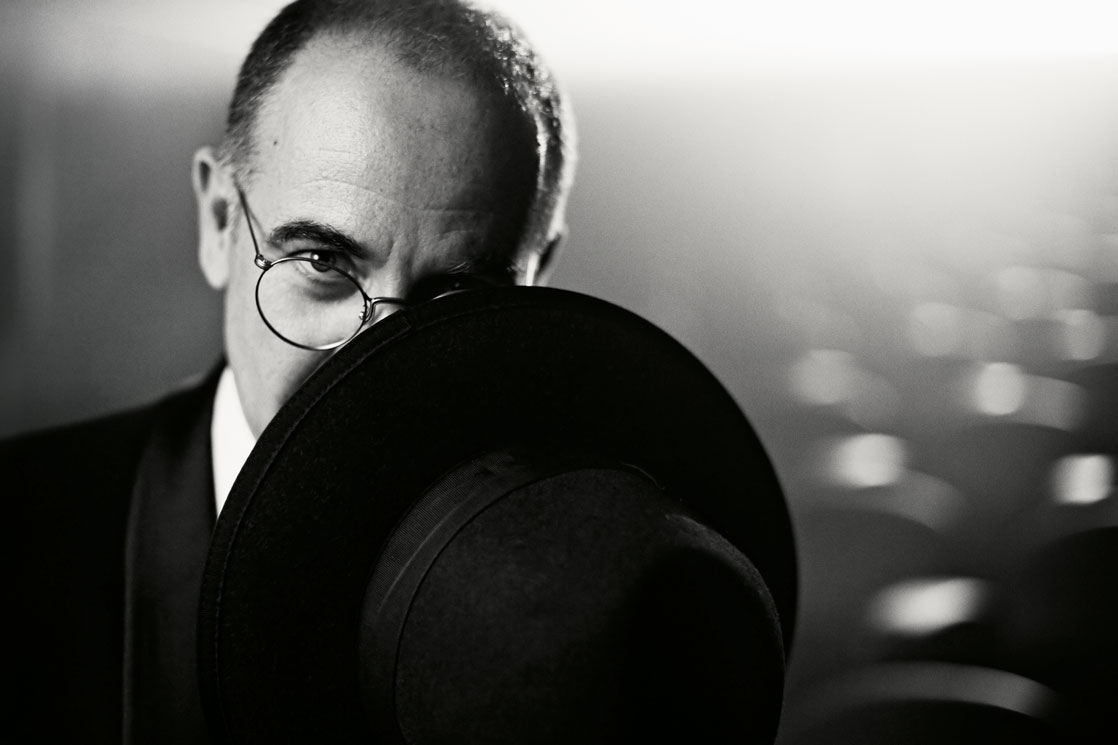
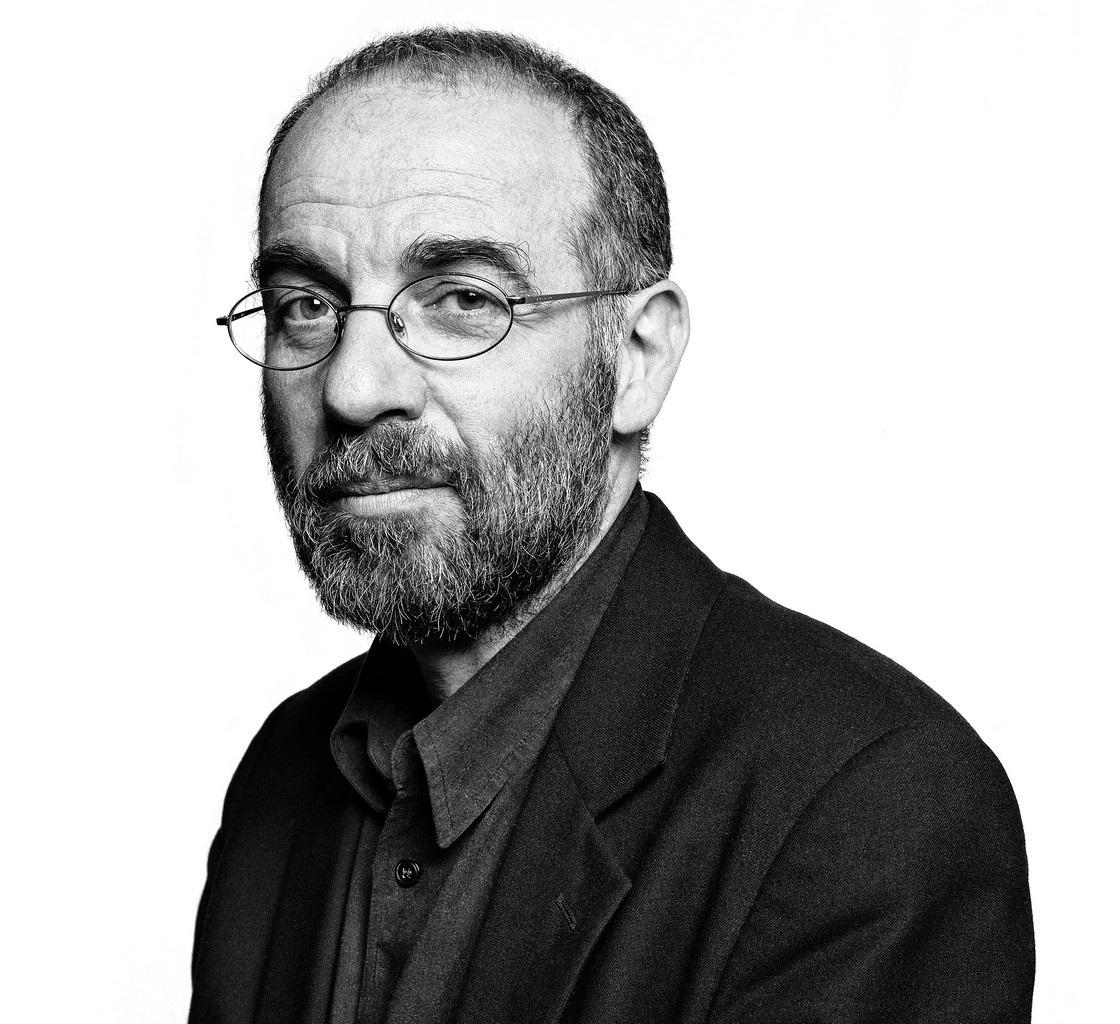
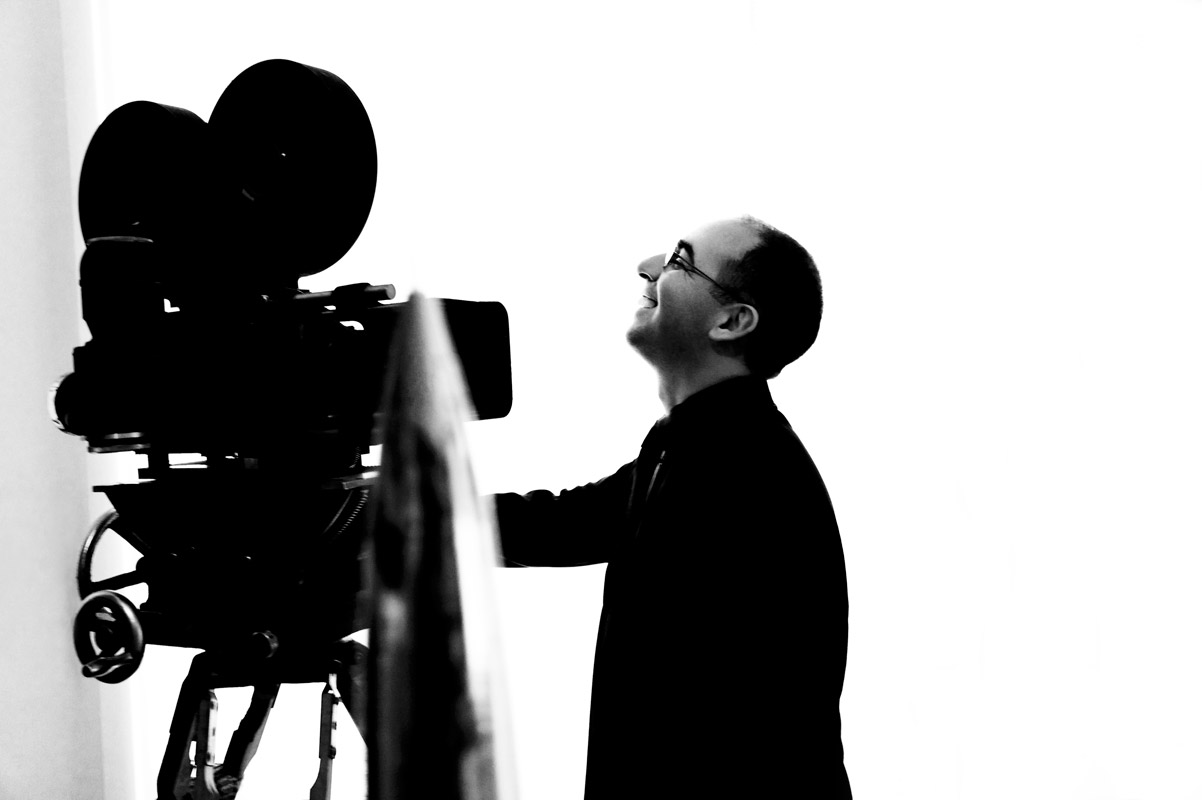
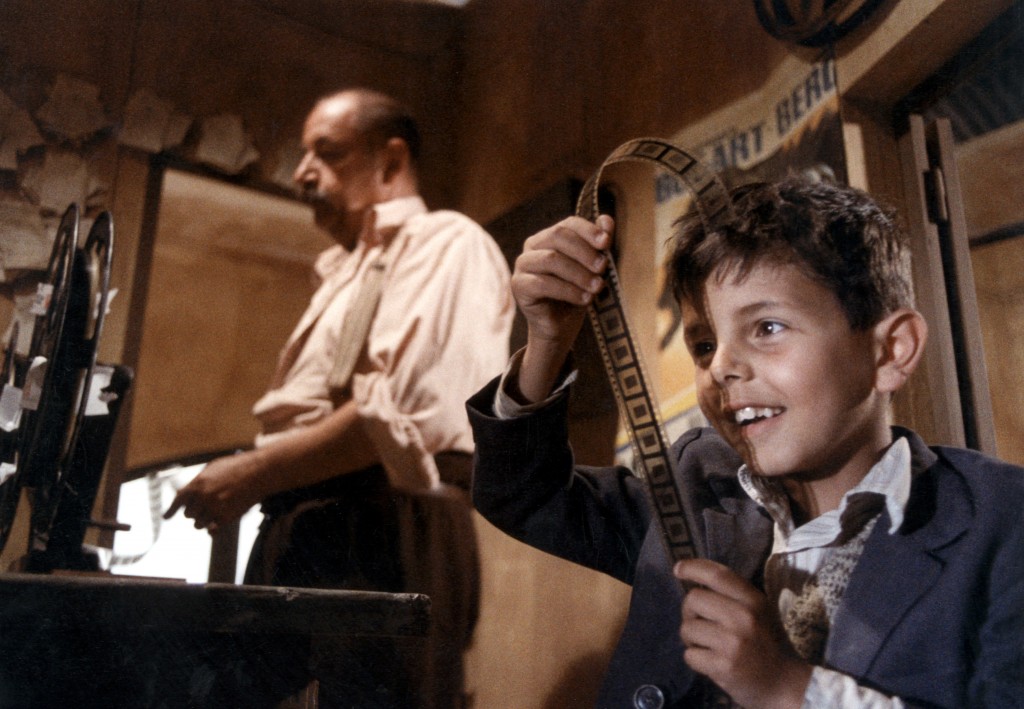
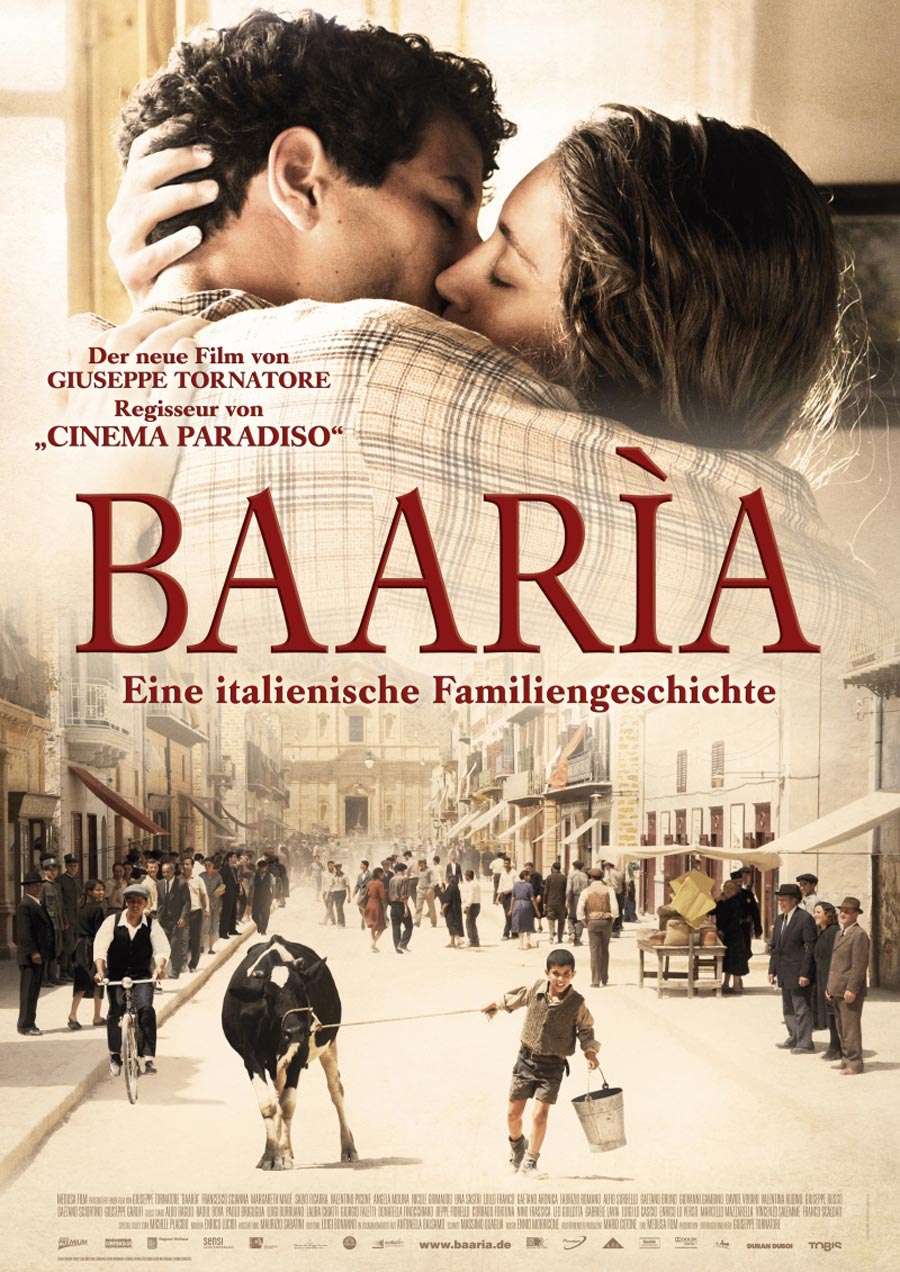
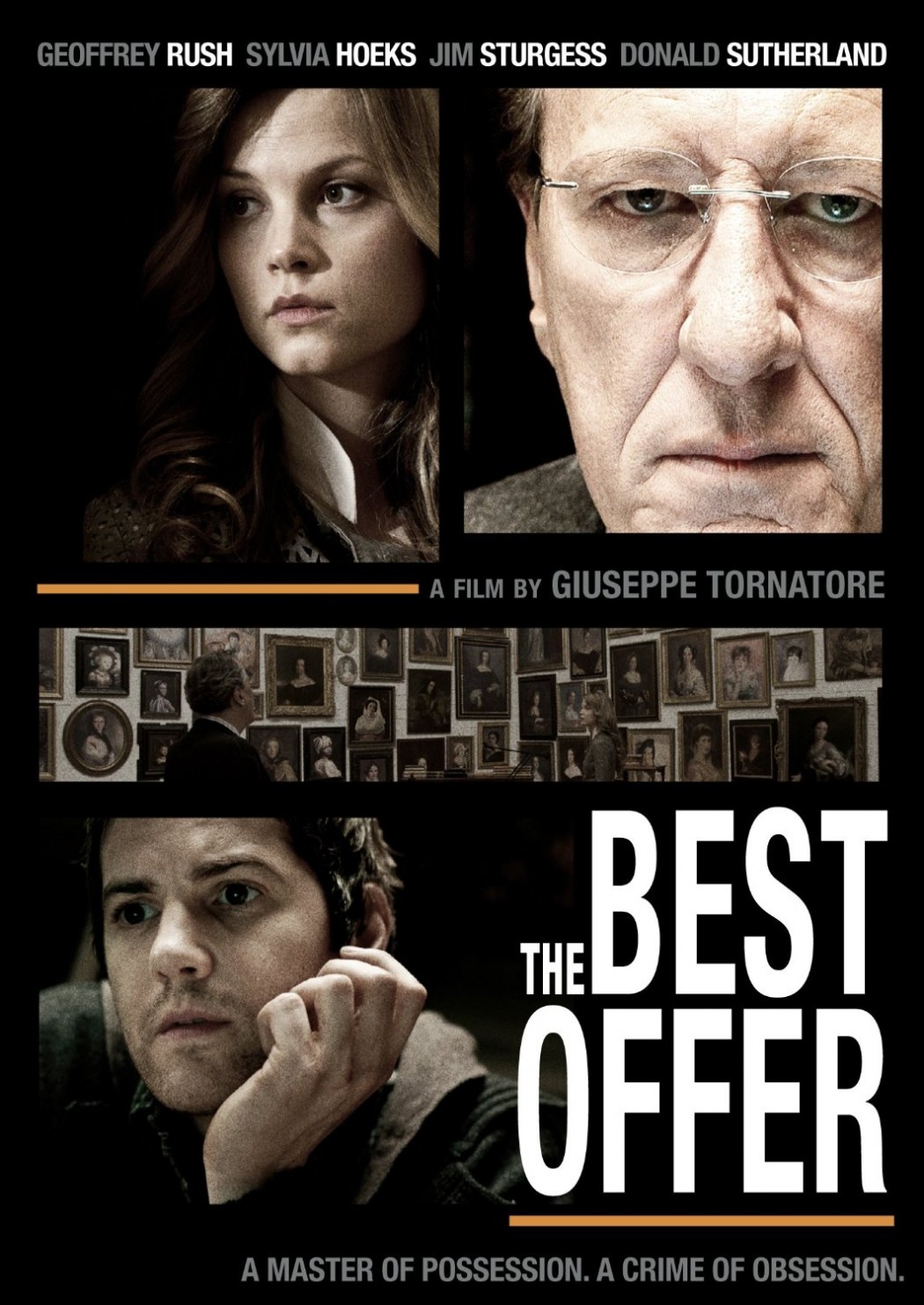
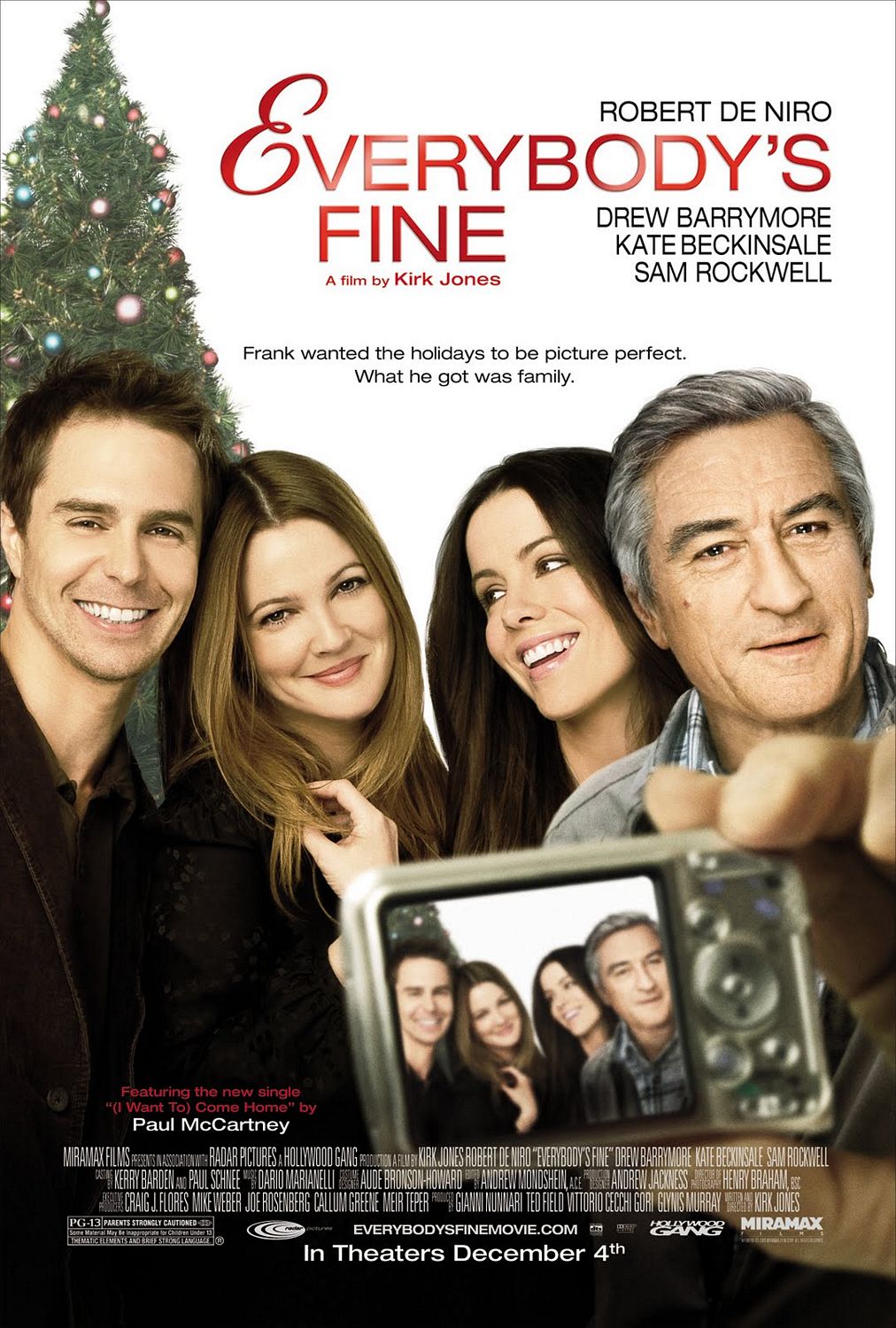
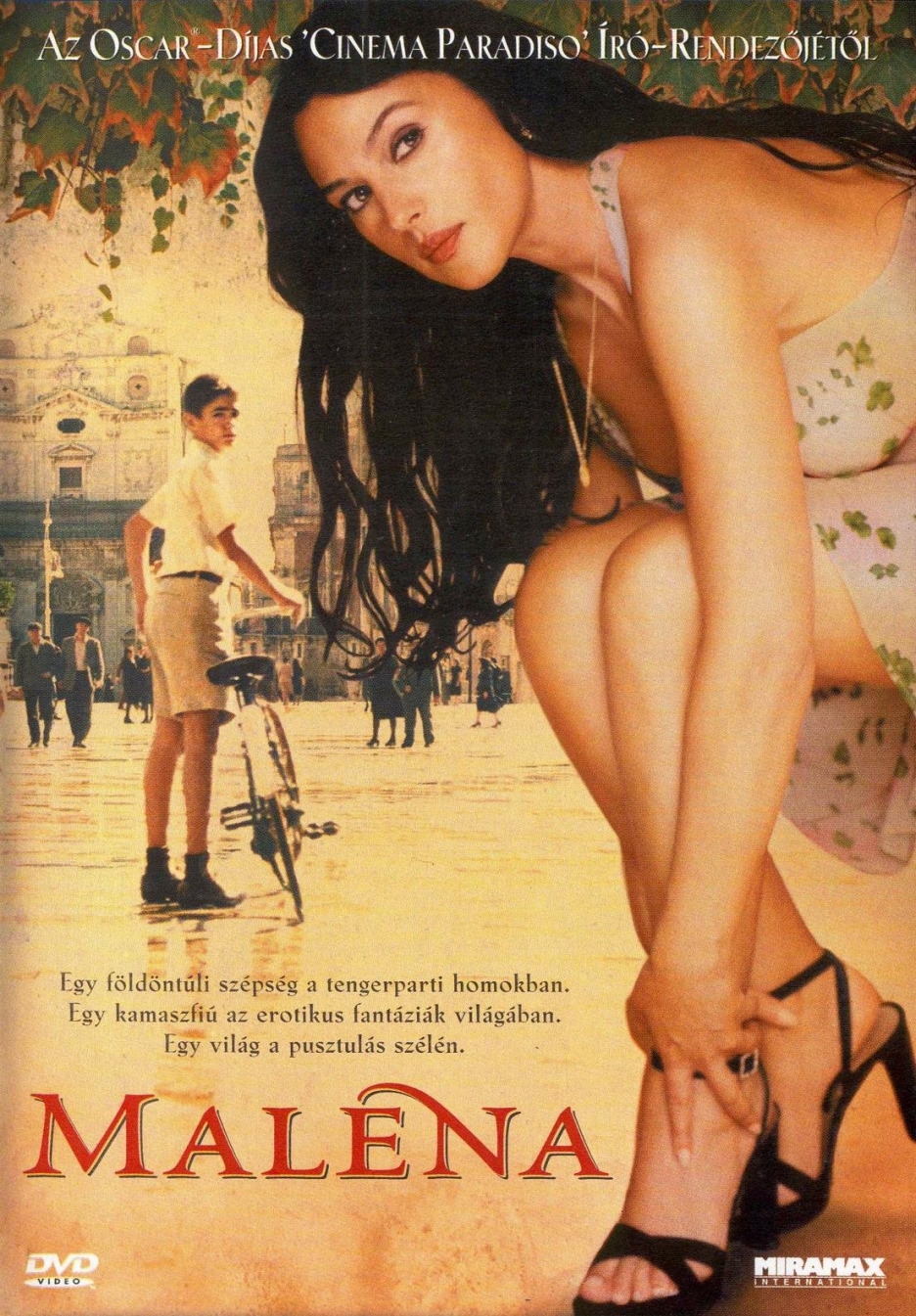
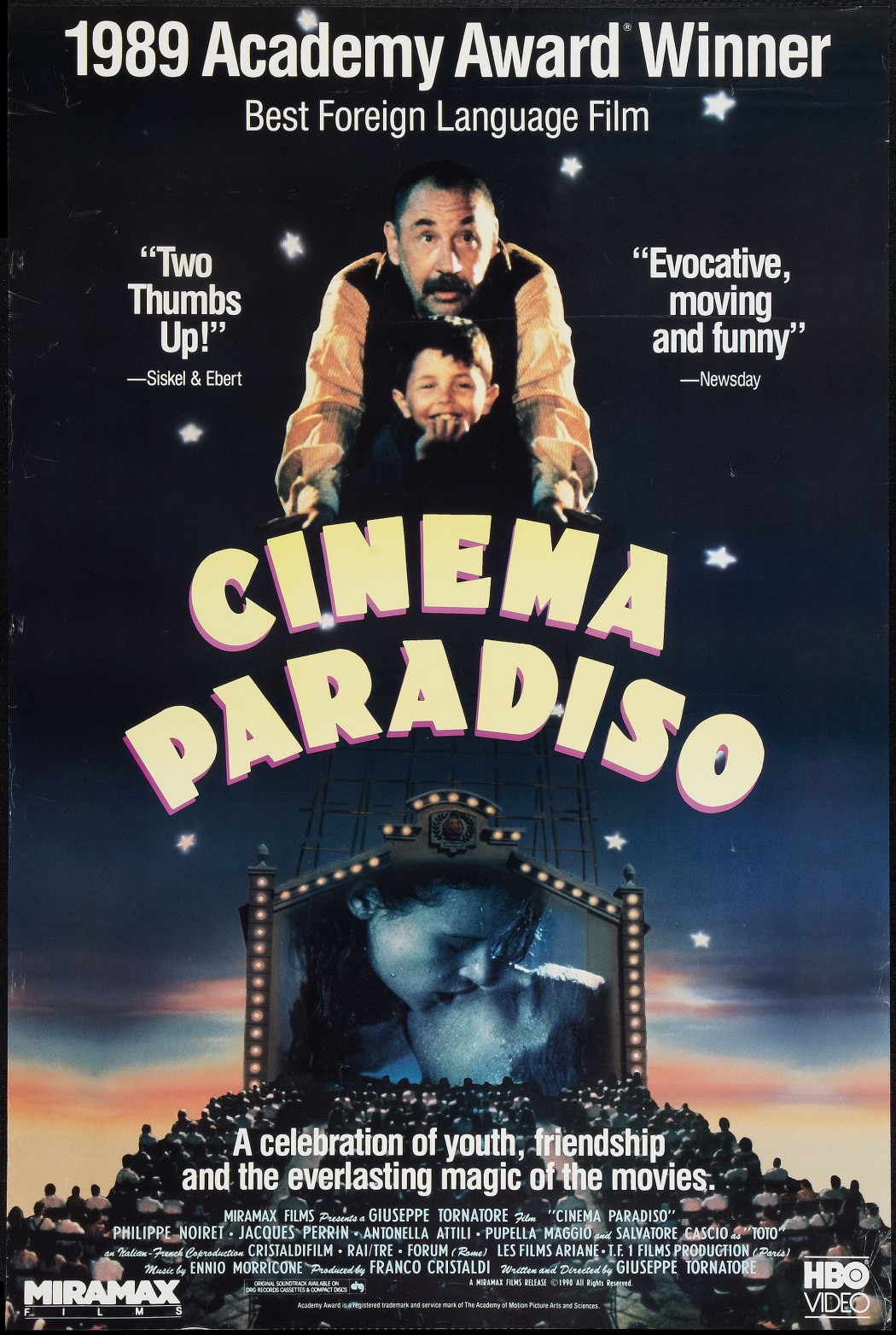

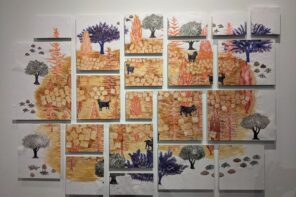


2 Comments